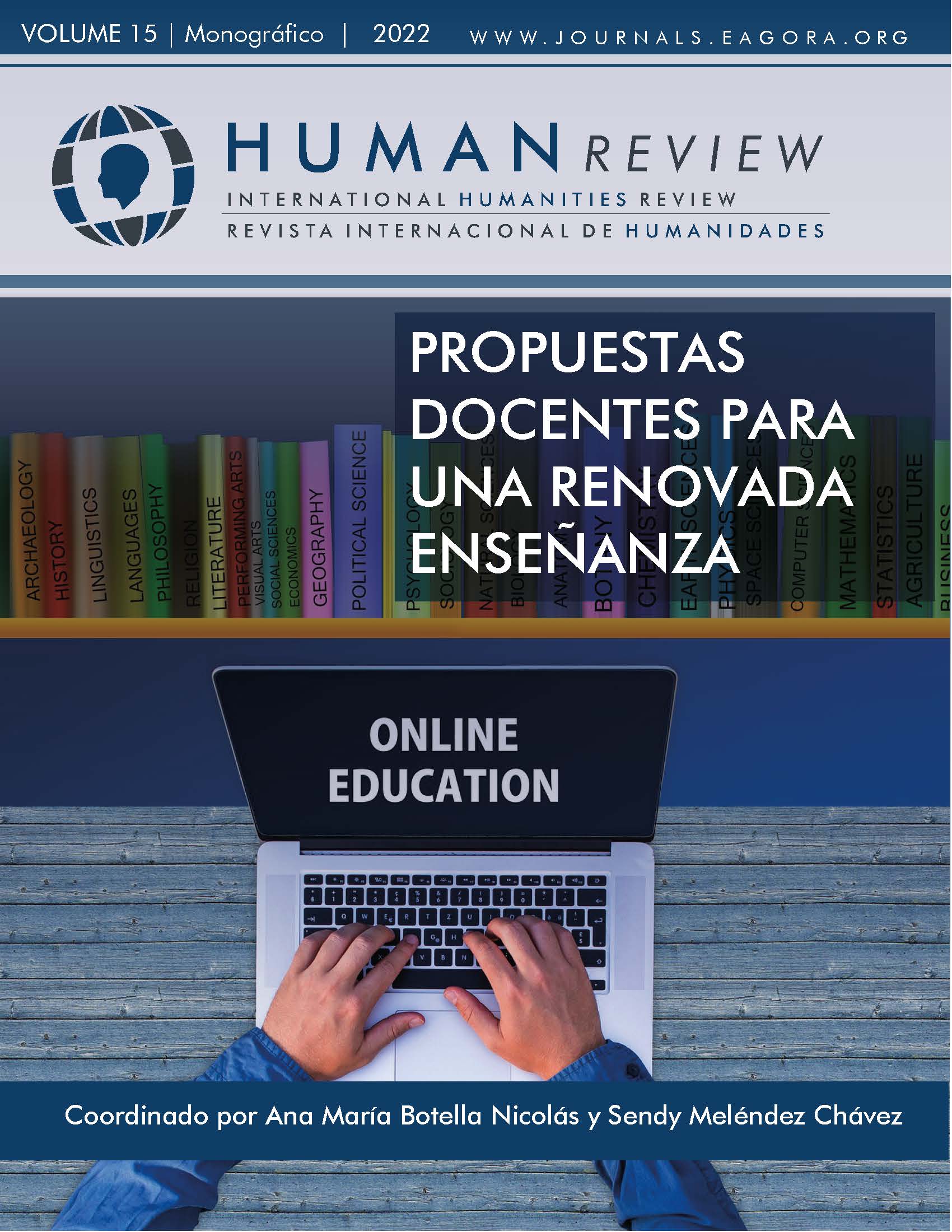A short note on e-cheating and online plagiarism. And possible solutions
DOI:
https://doi.org/10.37467/revhuman.v11.4232Keywords:
Oral Exams, Plagiarism, Exam Cheating, Online Courses, Academic IntegrityAbstract
Recent events, by making necessary online classes and exams, are raising plagiarism and cheating practices among students. I offer strategies to deal with both issues at the stake. I argue that institutions and educators should not only focus on how to detect bad practices and punishments, but rather on preventing despicable behaviours through the construction of a more sophisticated educational system.
References
Ashworth, P. D. (2000). Qualitative research methods. Estudios pedagógicos, (26), 91-106. DOI: https://doi.org/10.4067/S0718-07052000000100007
Ashworth, P., Bannister, P., Thorne, P., & Students on the Qualitative Research Methods Course Unit. (1997). Guilty in whose eyes? University students‘ perceptions of cheating and plagiarism in academic work and assessment. Studies in higher education, 22(2), 187-203. DOI: https://doi.org/10.1080/03075079712331381034
Baker, R., Papp, R., Academic Integrity Violation in the Digital Realm, Proceedings from the Southern Association for Information Systems 2003 Annual Conference, 193-202, 2003.
Born, A. D. (2003). Teaching tip: How to reduce plagiarism. Journal of information systems education, 14(3), 223.
Bowers, W. J. (1964). Student dishonesty and its control in college. Bureau of Applied Social Research, Columbia University.
Carlson, R., Assessing Your Students: Testing in the Online Course, Syllabus, 12(7), 16-18, 2000.
Cox, K.R. (1982). How to improve oral examinations, in: K.R. COX & C.E. EVANS (Eds), The Medical Teacher (Edinburgh, Churchill Livingstone).
Deale, R.N. (1975) Assessment and testing in the secondary school. Schools Council Examinations Bulletin, 32 (London, Evans/Methuen Educational)
Davis, S. F., Grover, C. A., Becker, A. H., & McGregor, L. N. (1992). Academic dishonesty: Prevalence, determinants, techniques, and punishments. Teaching of Psychology, 19(1), 16-20. DOI: https://doi.org/10.1207/s15328023top1901_3
Davis, M. H., & Karunathilake, I. (2005). The place of the oral examination in today‘s assessment systems. Medical teacher, 27(4), 294-297. DOI: https://doi.org/10.1080/01421590500126437
Fox, H. (1994). Listening to the world: Cultural issues in academic writing. National Council of Teachers of English, 1111 W. Kenyon Road, Urbana, IL 61801-109
Gibbs, H., Habeshaw, S. & Habeshaw, T. (1988) Interesting Ways to Teach: 53 Interesting Ways to Assess your Students (Bristol, Technical and Educational Services).
Larkham, P. J., & Manns, S. (2002). Plagiarism and its treatment in higher education. Journal of Further and Higher Education, 26(4), 339-349. DOI: https://doi.org/10.1080/0309877022000021748
Le Ha, P. (2006). Plagiarism and overseas students: Stereotypes again?. ELT journal, 60(1), 76-78. DOI: https://doi.org/10.1093/elt/cci085
Lea, M. R., & Street, B. V. (1998). Student writing in higher education: An academic literacies approach. Studies in higher education, 23(2), 157-172. DOI: https://doi.org/10.1080/03075079812331380364
Liu, D. (2005). Plagiarism in ESOL students: Is cultural conditioning truly the major culprit?. ELT journal, 59(3), 234-241. DOI: https://doi.org/10.1093/elt/cci043
McCabe, D. L. (1992). The influence of situational ethics on cheating among college students. Sociological inquiry, 62(3), 365-374. DOI: https://doi.org/10.1111/j.1475-682X.1992.tb00287.x
McCabe, D. L., Trevino, L. K., & Butterfield, K. D. (2002). Honor codes and other contextual influences on academic integrity: A replication and extension to modified honor code settings. Research in higher Education, 43(3), 357-378. DOI: https://doi.org/10.1023/A:1014893102151
Park, C. (2017). In Other (People‘s) Words: plagiarism by university students—literature and lessons. Academic ethics, 525-542. DOI: https://doi.org/10.4324/9781315263465-42
Sandars, J. (1998) MRCGP: approaching the New Modular Examination Approach to the Oral Examination Component (Cheshire, Pasttest).
Scanlon, P. M. (2003). Student online plagiarism: how do we respond?. College Teaching, 51(4), 161-165. DOI: https://doi.org/10.1080/87567550309596432
Scanlon, P. M., & Neumann, D. R. (2002). Internet plagiarism among college students. Journal of College Student Development, 43(3), 374-385.
Sowden, C. (2005). Plagiarism and the culture of multilingual students in higher education abroad. ELT journal, 59(3), 226-233. DOI: https://doi.org/10.1093/elt/cci042
Vernon, R. F., Bigna, S., & Smith, M. L. (2001). Plagiarism and the Web. Journal of Social Work Education, 37(1), 193-196. DOI: https://doi.org/10.1080/10437797.2001.10779046
Wakeford, R., Southgate, L. & Wass, V. (1995) Improving oral examinations: selecting, training and monitoring examiners for the MRCGP, British Medical Journal, 311, pp. 931–935. DOI: https://doi.org/10.1136/bmj.311.7010.931
Wass, V., Wakeford, R., Neighbour, R. & Van Der Vleuten, C. (2003) Achieving acceptable reliability in oral examinations: an analysis of the Royal College of General Practitioners membership examination’s oral component, Medical Education, 37, pp. 126–131. DOI: https://doi.org/10.1046/j.1365-2923.2003.01417.x
Downloads
Published
How to Cite
Issue
Section
License
Those authors who publish in this journal accept the following terms:
- Authors will keep the moral right of the work and they will transfer the commercial rights.
- After 1 year from publication, the work shall thereafter be open access online on our website, but will retain copyright.
- In the event that the authors wish to assign an Creative Commons (CC) license, they may request it by writing to publishing@eagora.org









